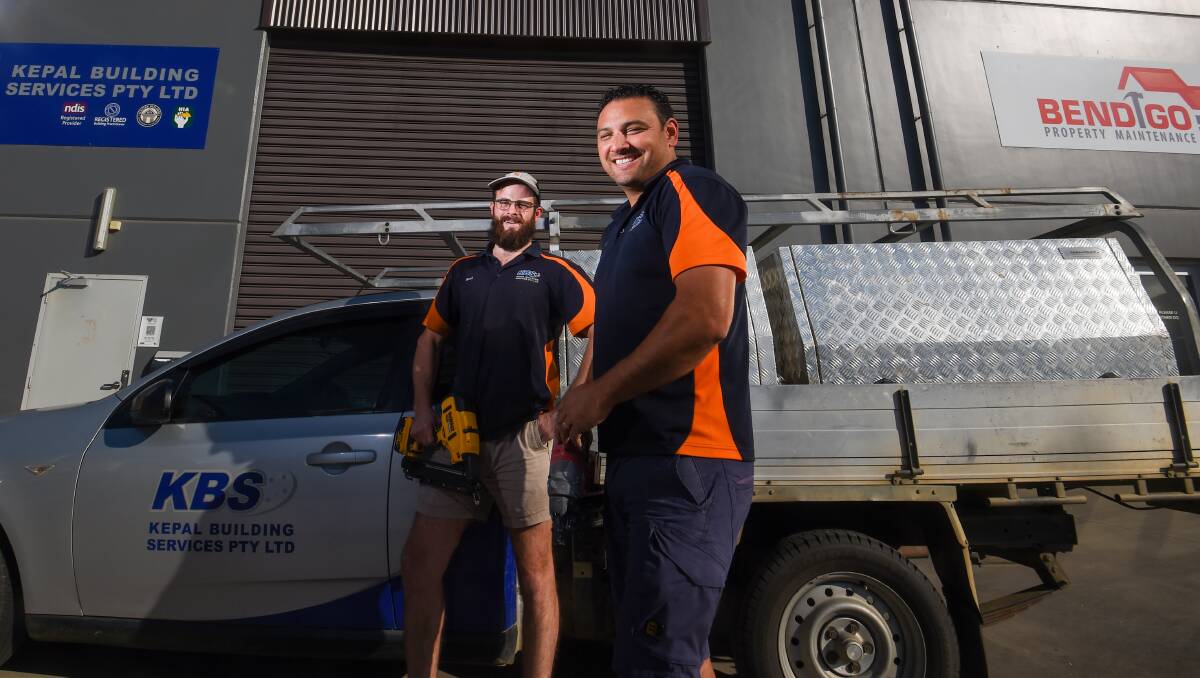
CONSTRUCTION industry bosses are sounding the alarm over huge workloads, a lack of skilled tradies and the looming threat of continued insolvencies. Greater Bendigo is home to more than 1850 construction businesses and just over half of those are operated by sole traders. Master Builders Australia acting chief executive officer Saeed Mirbagher said 98 per cent of the region’s construction entities were small businesses. More news: Bendigo council tram museum, workshop plans go out to tender “There’s a great pipeline of work for Greater Bendigo,” he said. “Building activity in Victoria is booming. We have had more than 16,650 new residential building approvals in the past three months to February and out of those – 12 per cent are in Greater Bendigo.” However, Mr Mirbagher said the industry was under pressure from rising material costs and a shortage of available workers. “Between March 2021 and February 2022, 333 construction insolvencies have happened across Victoria,” he said. “We are seeing chronic shortages of carpenters, bricklayers, plasterers, project managers – you name it. And what we are trying to do is have conversations with the government to bring more skilled people to the industry. Businesses can come become insolvent due to the cash flow crisis. We need to protect our builders.” Financial and housing market analyst Pete Wargent said buyers should be aware the building industry was not in a healthy state. “For construction, there’ll be a lot more insolvencies to come,” he said. “A lot of projects are built on fixed price contracts. And now with a shortage of materials and labour it’s very, very difficult for a lot of these businesses to complete projects profitably.” More news: Independent candidate tops Bendigo election ballot draw Mr Mirbagher said the impact of international border closures over the past couple of years had made the industry especially vulnerable to domestic population moves. Supervisor at East Bendigo construction company Kepal Building Services, Moses Tauelangi, said the skills shortage had prompted his business to recruit hospitality workers. “We’ve had heaps of work from government stimulus (packages),” he said. “But the lack of tradespeople has been a real problem for us. We’ve employed people into our industry from cafes and hospitality. We hired a chef who had his own restaurant and it has worked out really well. We have three others who also came from hospitality. They have been with us for about a year.” Mr Tauelangi said his greatest concerns were the supply chain and finding apprentices. “What I’d really like to see are more mature-age apprentices,” he said. “I did my carpentry apprenticeship when I was 34-35. The wage is not too low – you can live on it. There are incentives as well and you are learning a trade to set you up.” Our journalists work hard to provide local, up-to-date news to the community. This is how you can access our trusted content:
CONSTRUCTION industry bosses are sounding the alarm over huge workloads, a lack of skilled tradies and the looming threat of continued insolvencies.
Greater Bendigo is home to more than 1850 construction businesses and just over half of those are operated by sole traders.
Master Builders Australia acting chief executive officer Saeed Mirbagher said 98 per cent of the region’s construction entities were small businesses.
“There’s a great pipeline of work for Greater Bendigo,” he said.
“Building activity in Victoria is booming. We have had more than 16,650 new residential building approvals in the past three months to February and out of those – 12 per cent are in Greater Bendigo.”
However, Mr Mirbagher said the industry was under pressure from rising material costs and a shortage of available workers.
“Between March 2021 and February 2022, 333 construction insolvencies have happened across Victoria,” he said.
“We are seeing chronic shortages of carpenters, bricklayers, plasterers, project managers – you name it. And what we are trying to do is have conversations with the government to bring more skilled people to the industry. Businesses can come become insolvent due to the cash flow crisis. We need to protect our builders.”
Financial and housing market analyst Pete Wargent said buyers should be aware the building industry was not in a healthy state.
“For construction, there’ll be a lot more insolvencies to come,” he said.
“A lot of projects are built on fixed price contracts. And now with a shortage of materials and labour it’s very, very difficult for a lot of these businesses to complete projects profitably.”
Mr Mirbagher said the impact of international border closures over the past couple of years had made the industry especially vulnerable to domestic population moves.
Supervisor at East Bendigo construction company Kepal Building Services, Moses Tauelangi, said the skills shortage had prompted his business to recruit hospitality workers.
“We’ve had heaps of work from government stimulus (packages),” he said.
“But the lack of tradespeople has been a real problem for us. We’ve employed people into our industry from cafes and hospitality. We hired a chef who had his own restaurant and it has worked out really well. We have three others who also came from hospitality. They have been with us for about a year.”
Mr Tauelangi said his greatest concerns were the supply chain and finding apprentices.
“What I’d really like to see are more mature-age apprentices,” he said.
“I did my carpentry apprenticeship when I was 34-35. The wage is not too low – you can live on it. There are incentives as well and you are learning a trade to set you up.”
Our journalists work hard to provide local, up-to-date news to the community. This is how you can access our trusted content:
Source









